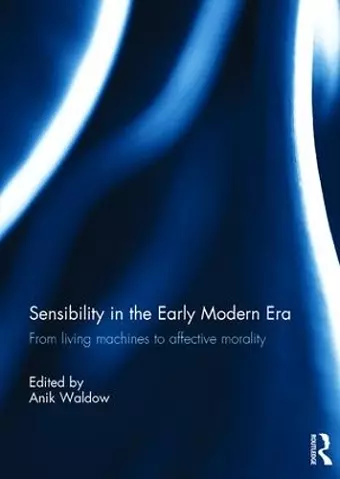Sensibility in the Early Modern Era
From living machines to affective morality
Format:Hardback
Publisher:Taylor & Francis Ltd
Published:4th Mar '16
Currently unavailable, and unfortunately no date known when it will be back
This hardback is available in another edition too:
- Paperback£33.99(9781138309753)

Sensibility in the Early Modern Era investigates how the early modern characterisation of sensibility as a natural property of the body could give way to complex considerations about the importance of affect in morality. What underlies this understanding of sensibility is the attempt to fuse Lockean sensationism with Scottish sentimentalism – being able to have experiences of objects in the world is here seen as being grounded in the same principle that also enables us to feel moral sentiments. Moral and epistemic ways of relating to the world thus blend into one another, as both can be traced to the same capacity that enables us to affectively respond to stimuli that impinge on our perceptual apparatus.
This collection focuses on these connections by offering reflections on the role of sensibility in the early modern attempt to think of the human being as a special kind of sensitive machine and affectively responsive animal. Humans, as they are understood in this context, relate to themselves by sensing themselves and perpetually refining their intellectual and moral capacities in response to the way the world affects them. Responding to the world here refers to the manner in which both natural and man-made influences impact on our ability to conceptualise the animate and inanimate world, and our place within that world. This book was originally published as a special issue of the Intellectual History Review.
ISBN: 9781138650978
Dimensions: unknown
Weight: 385g
134 pages